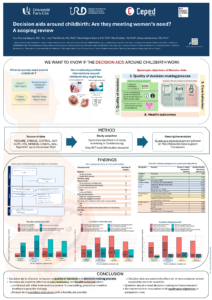Abstract
Introduction WHO recommends that all women have the option to have a companion of their choice throughout labour and childbirth. Despite clear benefits of labour companionship, including better birth experiences and reduced caesarean section, labour companionship is not universally implemented. In Thailand, there are no policies for public hospitals to support companionship. This study aims to understand factors affecting implementation of labour companionship in Thailand.
Methods This is formative qualitative research to inform the ‘Appropriate use of caesarean section through QUALIty DECision-making by women and providers’ (QUALI-DEC) study, to design, adapt and implement a strategy to optimise use of caesarean section. We use in-depth interviews and readiness assessments to explore perceptions of healthcare providers, women and potential companions about labour companionship in eight Thai public hospitals. Qualitative data were analysed using thematic analysis, and narrative summaries of the readiness assessment were generated. Factors potentially affecting implementation were mapped to the Capability, Opportunity, and Motivation behaviour change model (COM-B).
Results 127 qualitative interviews and eight readiness assessments are included in this analysis. The qualitative findings were grouped in four themes: benefits of labour companions, roles of labour companions, training for labour companions and factors affecting implementation. The findings showed that healthcare providers, women and their relatives all had positive attitudes towards having labour companions. The readiness assessment highlighted implementation challenges related to training the companion, physical space constraints, overcrowding and facility policies, reiterated by the qualitative reports.
Discussion If labour companions are well-trained on how to best support women, help them to manage pain and engage with healthcare teams, it may be a feasible intervention to implement in Thailand. However, key barriers to introducing labour companionship must be addressed to maximise the likelihood of success mainly related to training and space. These findings will be integrated into the QUALI-DEC implementation strategies.







